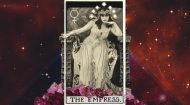Frozen Love: Are You An Anna or an Elsa?

Who doesn’t love the film Frozen? It doesn’t matter if you’re six or sixty – people warm to this story about two estranged sisters as well as its hit song ‘Let it Go’. But Frozen has a lot of teach us on a soul level about relationships as Anna and Elsa both represent common traps we can all fall into that instead of getting us the love we want, end up driving people away or leaving us abandoned and defensive instead.
 Anna and Elsa represent two different ‘attachment’ styles. This is the term psychologists use to describe how we perceive our relationships (most often the romantic ones!), of meeting our needs. When we have negative expectations around relationships we can evolve what is known as an ‘anxious’ attachment style. If we have this we have a deep fear of abandonment and rejection – yet our insecurities can lead to us driving people away. So this becomes a self-fulfilling prophecy. At the heart of this we are usually lonely and feel we do not deserve to be loved. In Frozen Anna is ‘anxiously’ attached. Her parents death and her sister’s abandonment has left her alone and desperate to be loved.
Anna and Elsa represent two different ‘attachment’ styles. This is the term psychologists use to describe how we perceive our relationships (most often the romantic ones!), of meeting our needs. When we have negative expectations around relationships we can evolve what is known as an ‘anxious’ attachment style. If we have this we have a deep fear of abandonment and rejection – yet our insecurities can lead to us driving people away. So this becomes a self-fulfilling prophecy. At the heart of this we are usually lonely and feel we do not deserve to be loved. In Frozen Anna is ‘anxiously’ attached. Her parents death and her sister’s abandonment has left her alone and desperate to be loved.
So desperate in fact that she agrees to marry a man immediately upon meeting him without bothering to find out anything about him. In her relationships with Elsa – when Elsa distances herself, Anna continues to pursue her – driving Elsa further away. If we have this kind of attachment issue we can engage in this sort of behaviour with anyone close to us – a sibling, a friend but most especially, a lover.
Have you ever felt someone withdraw and so have ‘turned up the heat’ in contacting or pursuing them? People with anxious attachment issues can often behave this way because they feel that the person they are attached to is their sole source of love and reassurance. Do you see an Anna anywhere in your relationship history?
Elsa however has what is known as an ‘avoidant’ attachment style. As a child she was told she most ‘conceal, don’t feel’ her magical gifts. This meant she grew up thinking herself unlovable and unacceptable the way she was. Because she has hurt her sister, she pulls away and becomes fearful of emotional closeness. Avoidant attachment sufferers can become very independent, do not want to rely on others and shun demonstrations of affection whether physical or verbal. They can find it very difficult to share their feelings – in fact their feelings may frighten them so they can appear cold.
They can also become extremely defensive even when there is no need to be. We see this in Elsa when she lashes out at Anna when she confronts her about her lack of feeling – despite the fact that she clearly has very deep feelings. Even when Anna offers to help her, Elsa insists she wants to remain alone. People with this kind of attachment issue find it very difficult to ask for the help they desperately need. Another example of this kind of avoidant attachment style is the Sandra Bullock character in the film 28 Days. Sandra Bullock plays an alcoholic who must either choose between jail time or rehab. During her rehab it emerges she cannot ask for help – not even from her sister. This film also plays on the same dynamic as Frozen.
If any of this rings a bell and you identify with either Anna or Elsa, what’s your best way to thaw out your love future – or any relationship for that matter? Very often just like in Frozen, if we are an anxious attachment person we end up attracting an avoidant attachment partner in an effort probably on the part of both, to resolve the issue within the relationship. Anna and Elsa ‘unfroze’ their relationship when they started to empathise with each other and share their feelings. Understanding why you and the other party behaves the way they do, and getting past the fear of communicating about it, is your first step.
If you are not currently in a relationship but have realised that you may fit into the Anna or the Elsa mould, take heart! If you’re an Anna work on feeling secure in yourself and knowing you do not need anyone to ‘complete’ you. Look at all the connections that you already have that love and support you – family and friends, colleagues. You are surrounded by all the love you need. A partner can only add to this love – they cannot take it away. You have managed fine without them and should the relationship not work out, you will be fine again. Above all, take your time getting to know a prospective partner. You already have all the love in the world – so you have all the time in the world to make your mind up about love.
If you identify with Elsa know you are loveable just as you are. You do not need to pretend to be anyone else or hide any aspects of your personality which you believe are unlovable. Do you want a relationship based on honesty or one based on you pretending to be something you are not? You know the answer to that! If someone cannot accept you for all the magical things you are, then this is not real love. Learn to love all those bits of you that have been suppressed or denied or you feel are unacceptable to others, because just like Elsa – this is where your power is!
Once you integrate these something magical happens – all your barriers come down because you now love yourself unconditionally. It is only when we can do this that we can open up to love and also not fear rejection. Our self-love is not dependent on anyone’s validation. We know we are loveable. If you can’t love yourself, you can’t love somebody else. Work on that love and the other kind will follow and please, if you’re stuck – ask for help even if that means talking to a professional about this. People love helping other people as it’s a way of showing love. Think about that.
There are loads of articles here on MK for you about self-love and how to connect to that deep well of it inside which enables you to manifest what you need in the outer world. So, whether you are an Anna or an Elsa – get ready for the love thaw!
today's featured reader
book a reading with your favourite psychic
Our live psychics calls cost Calls recorded, 18+ with bill payers permission. Entertainment SP www.inveroak.com. . Terms and conditions apply
Credit card readings:
Calls recorded, 18+ with bill payers permission. Entertainment SP www.inveroak.com. . Terms and conditions.
My New Tarot Deck
I’ve been creating my Knight-Waite tarot deck for three years.
It has been such a labour of love, I can’t wait to unleash it!
It launched in 2023, but why not take a little sneak peek at the cards below?
We have no affiliation whatsoever with the Rider-Waite Tarot Deck, the rights in which are owned and/or controlled by the Penguin Random House Group.
Any similarity in trade names is coincidental only: we are not licensed by, endorsed by, or in any other way connected with Rider-Waite,
the Rider-Waite Tarot Deck, or the Penguin Random House Group.











































































































